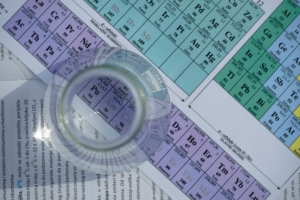Another death related to allogenic CAR-T cell therapy
Following the death of a patient with blastic plasmacytoid dendritic cell neoplasm (BPDCN), the FDA put a hold on two clinical Phase I trials with UCART123, French Cellectis SA's allogenic CAR-T therapies. Preliminary results from two trials in CD19+ relapsed or refractory B-Cell acute lymphoblastic leukemia patients dosed with UCART19 suggest that cytokine release syndrome (CRS) associated with allogenic CAR-T's must be managed very carefully.
In the the CALM (UCART19 in Advanced Lymphoid Malignancies) dose-escalation study, the 6 patients dosed with UCART19 all experienced cytokine release syndrome (CRS): five grade 1-2 reactions were manageable by supportive care and Roche’s IL6R-blocker tocilizumab. One patient died from multiple organ failure probably triggered by neutropenic sepsis at day 15. Time to onset of first CRS symptoms occurred at day 5-10. CRS correlated with serum cytokine increase (IL-6; IL-10 and INF?) and UCART19 expansion in the blood. One patient was reported to have probable skin GvHD (grade 1). Asymptomatic viral reactivations (CMV and/or adenovirus) were seen in 3 patients and resolved with antiviral therapy. The study is designed to determine the maximum tolerated dose of UCART19. Two further dose levels remain to be assessed. Cellectis concludes that the preliminary results of the first-in-human trial of UCART19 in a high risk R/R B-ALL adult population that had no further treatment options revealed no unexpected toxicities. Results will be presented at ASH meeting in Atlanta.
In the PALL (Pediatric Acute Lymphoblastic Leukemia) Phase I study, 5 out of 10 pediatric patients with relapsed or refractory B-ALL received a fixed dose (2×107 total cells or 1.1 to 2.3×106 cells/kg) of UCART19, to assess its ability to achieve molecular remission at day 8 and to enable allogeneic stem cell transplantation (allo-SCT). All patients dosed with UCART19 experienced reversible cytokine release syndrome, grade 1-3, with a time to CRS onset between 4 and 8 days. However, by day 28 all patients had achieved complete remission without detectable minimal residual disease but showed incomplete blood count recovery. Two children relapsed 3 months after transplantation (one CD19- and one CD19+) and died 7 and 8 months after UCART19 infusion, respectively. One patient died in remission from transplant-related complications including thrombotic microangiopathy and BK haemorrhagic cystitis and nephritis. Two subjects remain in molecular remission 2 and 2.5 months post-transplant. Cellectis concludes that no unexpected toxicities occurred.
The partners plan to expand the CALM study, currently conducted in the UK, to the US and to provide further data from the PALL study as soon as available. CRS is a known and, in the case of autologous products, generally manageable side effect of CAR-Ts. It is still open if the grade 4 capillary leak syndrome (CLS) and CRS related to UCART123 + steroids administration is limited or a generell feature of UCARTs or allogenic CAR-T cell therapies of if it is related to the co-administration of steroids.




 SANOFI
SANOFI